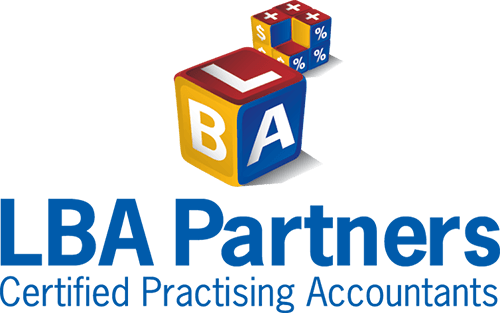2017 Budget Summary
Federal Budget 2017-18 – What it means for you
Highlights
- Notwithstanding speculation to the contrary, the Temporary Budget Repair Levy (levied at two percent of taxable income in excess of $180,000) will cease on 30 June this year as planned.
- The $20,000 immediate write-off for small businesses is being extended for one year, to 30 June 2018.
- The Medicare levy is being increased from 2% to 2.5%, effective from the 2019-20 income year.
- A number of measures have been announced to reduce the pressure on housing affordability, including:
- an annual charge on foreign owners of underutilised residential property
- various CGT changes for foreign investors, including denial of the main residence exemption
- an option for individuals aged 65 or over to contribute the proceeds of downsizing their home to superannuation
- denial of deductions for expenses related to inspecting, maintaining or collecting rent for a residential investment property
- access to a higher CGT discount of 60% (as compared to the 50% available in other circumstances) for investments in qualifying affordable housing
- the introduction of a first home super saving scheme
If you are an individual . . .
who pays tax
. . . you may not have to pay the Medicare levy this year. From the 2016-17 income year (this year) the Government will increase the Medicare levy low-income threshold for singles to $21,655 (from $21,335), for families to $36,541 (from $36,001), for single seniors and pensioners to $34,244 (from $33,738) and for senior and pensioner families to $47,670 (from $46,966). The additional amount of threshold for each dependent child or student will also be increased to $3,356 (from $3,306). This means that you can earn more before triggering a liability to pay the Medicare levy.
. . . if you are required to pay the Medicare levy you will have to pay more from the 2019-20 tax year, as the Medicare levy is being increased from 2% to 2.5%
earning more than $180,000 per annum
. . . you will pay less tax next year. Notwithstanding speculation to the contrary, the Temporary Budget Repair Levy (an additional two percent on taxable income in excess of $180,000) will cease on 30 June 2017 as planned. It is not being extended.
who owns a home
. . . if you are aged 65 or over and have owned that home for at least 10 years, from 1 July 2018 you will be able to make a non-concessional (after tax) contribution of up to $300,000 from the proceeds of selling your home. You will be able to do this regardless of the existing age test, work test and soon to be introduced $1.6 million cap on after tax contributions.
. . . if you are a foreign or temporary resident you will not have access to the CGT main residence exemption from 7.30pm on Budget night (although existing properties held prior to this time will be grandfathered until 30 June 2019).
who wants to own a home
. . . you will be able to withdraw on or after 1 July 2018 voluntary superannuation contributions you make from 1 July 2017, along with associated deemed earnings, for a first house deposit. You will be taxed at your marginal rate, less a 30 percent offset, on concessional (before-tax) contributions you withdraw. You will be able to contribute up $15,000 per year, and up to $30,000 in total.
who is studying
. . . repayments on your Higher Education Loan Programme (HELP) debts will be subject to revised income thresholds - a new minimum threshold of $42,000 will be established with a 1% repayment rate, and a maximum threshold of $119,882 with a 10 per cent repayment rate.
who has a SMSF
. . . the use of limited recourse borrowing arrangements by your fund will be included in your $1.6 million total superannuation balance and transfer balance cap, thereby reducing your scope to make non-concessional contributions from other sources.
. . . you can expect greater focus on the use of related party transactions on non-commercial terms to increase your superannuation savings.
If you invest in residential property . . .
and are a foreign resident
. . . where the property is not occupied or genuinely available on the rental market for at least six months per year, you will be charged an annual 'penalty' of at least $5,000. The new charge applies to applications to acquire property from 7:30pm Budget night.
. . . you may find yourself barred from buying into a new development, as the Government will introduce a 50% cap on foreign ownership in such developments.
and incur travel expenses related to inspecting, maintaining or collecting rent for the property
. . . from 1 July 2017 you will no longer be able to claim deductions for those expenses. The cost of engaging a real estate agent for property management services will remain deductible.
that qualifies as 'affordable housing'
. . . on or after 1 January 2018 you will benefit from a higher CGT discount - 60% instead of 50%. To qualify for the higher discount, housing must be provided to low to moderate income tenants, with rent charged at a discount below the private rental market rate. The affordable housing must be managed through a registered community housing provider and the investment held for a minimum period of three years.
. . . you will be able to access concessional tax treatment by investing in a Managed Investment Trust that itself invests in affordable housing, provided the affordable housing is available for rent for at least ten years.
that contains plant and equipment
. . . you will not be able to claim depreciation deductions for assets purchased after 9 May 2017 by a previous owner of the property.
that is newly constructed or a new subdivision
. . . on or after 1 July 2018 you will be required to remit GST on the purchase directly to the ATO as part of settlement, as opposed to the developer being required to remit the GST as is currently the case.
If you are a business . . .
planning to employ foreign workers
. . . from March 2018 you may be required to pay a levy. Businesses will be required to make an upfront payment of $1,200 (for businesses with turnover of less than $10 million) or $1,800 (for businesses with turnover of $10 million or more) per visa per year for each employee on a Temporary Skill Shortage visa, and make a one-off payment of $3,000 (for businesses with turnover of less than $10 million) or $5,000 (for businesses with turnover of $10 million or more) for each employee being sponsored for a permanent Employer Nomination Scheme (subclass 186) visa or a permanent Regional Sponsored Migration Scheme (subclass 187) visa.
planning to invest in a depreciating asset or two (or more)
. . . if you are a small business (which you are if your turnover less than $10 million for the year) you will be able to immediately deduct purchases of eligible assets costing less than $20,000 through to 30 June 2018 (initially planned to cease on 30 June 2017). From 1 July 2018 the immediate deductibility threshold will revert back to $1,000.
in the courier or cleaning industry
. . . the taxable payments reporting system (TPRS) that operates in the building and construction industry will apply to you from 1 July 2018. You will be required to report payments you make to contractors (individual and total for the year) to the ATO.
and you are intending to dispose of your business, or CGT assets used in your business
. . . your accountant may need to take a second look at whether the small business CGT concessions will be available to you, as the Government is planning to make changes to those rules from 1 July 2017 designed to restrict their availability.
Whoever you are . . .
if you operate in the black economy
. . . your affairs are more likely to be picked up by the ATO, as the Government will be extending the provision of additional funding for ATO audit and compliance programs to better target black economy activities, such as non lodgement, omission of income and non payment of employer obligations.
. . . the Government will act to prohibit the manufacture, distribution, possession, use or sale of electronic point of sale (POS) sales suppression technology and software, which apparently allows businesses to understate their incomes by untraceably deleting selected transactions from electronic records in POS equipment so that income earned from these transactions and tax owing from this income is not reported to the ATO. .

Management Consulting
We have the know-how and experience to offer advice that helps you run your business more effectively.
Self-Managed Superannuation Funds
At LBA Partners we provide the professional advice you need to manage your own fund and greatly simplify the process for you.



